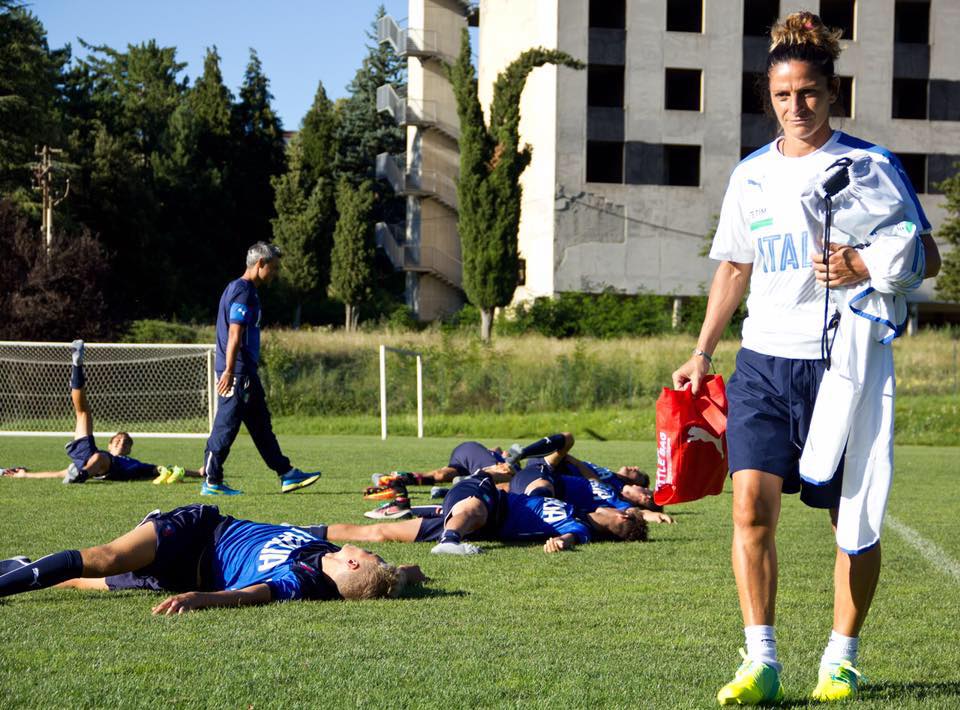Inspiration March 28, 2017


In soccer crazy Italy, where the sport is virtually a religion, trailblazer Patrizia Panico has become the first woman to be named head coach of a men’s team.
Having been appointed less than two weeks ago to run her nation’s male youth team, Italy Under-16s, she knows this is a moment in history – and it’s one she’s ready for.
“Women are slowly reaching roles that were previously denied to them. It’s about time,” she told the BBC. “In Italy, women have long been subordinates in my sport, so this represents a lot of steps forward. It’s also just the beginning.”
Only a year after retiring from playing, the former captain of the Italian women’s national team has been tasked with the responsibility of developing the best young male soccer talent in Italy. Her country has won four World Cups. Now fans, together with bosses at the Italian Federation who appointed her, hope this new generation of players can go on to equal or surpass Brazil, which has the most world titles of any nation with five.
Panico is off to the perfect start having led her players to a 3-2 win over Germany’s youth team on March 24.
Those players already have an unusual nickname for their female coach – they call her, “Mister.” That is the traditional way that male coaches are addressed there but “Mister Patrizia” doesn’t mind and sees it as a mark of acceptance and respect.
She brings a lot of international soccer experience to the job having scored a record 110 goals in 204 appearances for Italy. On the field, she was so deadly as a forward that fans nicknamed her “Scorpion.”
But for all her appearances and goals, she was not able to help her nation win a tournament. Panico says the near misses she experienced as a player make her even more determined to taste success as a coach.
Her coaching methods differ in one major way with those of most male coaches. She doesn’t scream at her players from the sidelines throughout the game like Antonio Conte (below), the former Italy coach and current Chelsea boss.
Instead she believes in making her point in soft tones, explaining, “Speaking quietly is not a sign of weakness but a sign of confidence.”
Her rise to a such a senior role in international soccer, shows the progress made in attitudes towards women in the game since the scandalous comments back in 2004 of the sport’s then most powerful figure, Sepp Blatter, former president of governing body, FIFA. He notoriously said, “Let the women play in more feminine clothes like they do in volleyball. They could, for example, have tighter shorts. Female players are pretty, if you excuse me for saying so.”
Blatter was not excused for a subsequent corruption scandal which saw him banned from the sport.
The future of the game is now in the hands of people like Panico who is getting widespread public support in Italy and beyond, especially from young girls who see her career an an inspiration. She has received letters from girls excluded from playing soccer because they are told it is a game for boys. There have also been messages from girls who play in mixed teams but never have the ball passed to them by boys in the team.
Her message to them is one of hope and of fact: “Things are changing!”